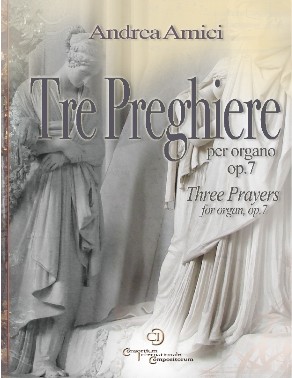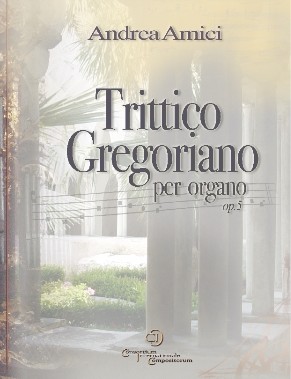
Andrea Amici has been inclined towards music since the age of ten, when he first taught himself organ, piano, and composition (in that order). After various experiences across various musical styles, he began academic studies in composition, piano, organ, and conducting, obtaining degrees in both orchestral and choral conducting. He simultaneously studied humanities, obtaining a degree in classical literature with an emphasis in philological-literary studies.
Amici’s musical production ranges from vocal, choral, and symphonic works to organ, piano, and chamber music.
In his music, various cultural experiences, often extramusical (above all literary, religious, and historical influences), merge and become the basis for ever more unpredictable musical pathways, in which one’s experiences, psychology, techniques, and culture – every aspect of the human soul and its richness – subconsciously flow together in a synthesis that finds its raison d’etre in mystery.
Particular attention is given to harmonic structures, often based on a form of free diatonic style, in which melodic motives re-emerge from past humanistic eras, particularly influenced by the spirit of Gregorian chant.
Much of the music of Andrea Amici consists, in the final analysis, of a kind of meditation, expressed in music often allegorically, on thoughts and issues that plunge the depths of Christianity or of the purely humanistic intermingling of past philosophical and literary thought.
Tre Preghiere per organo, op. 7
[purchase_link id=”1174″ style=”button” color=”gray” text=”Buy PDF”]
| order Print: $32.00

Trittico Gregoriano, op. 5 | order PDF: $7.50 | order Print: $12.00
